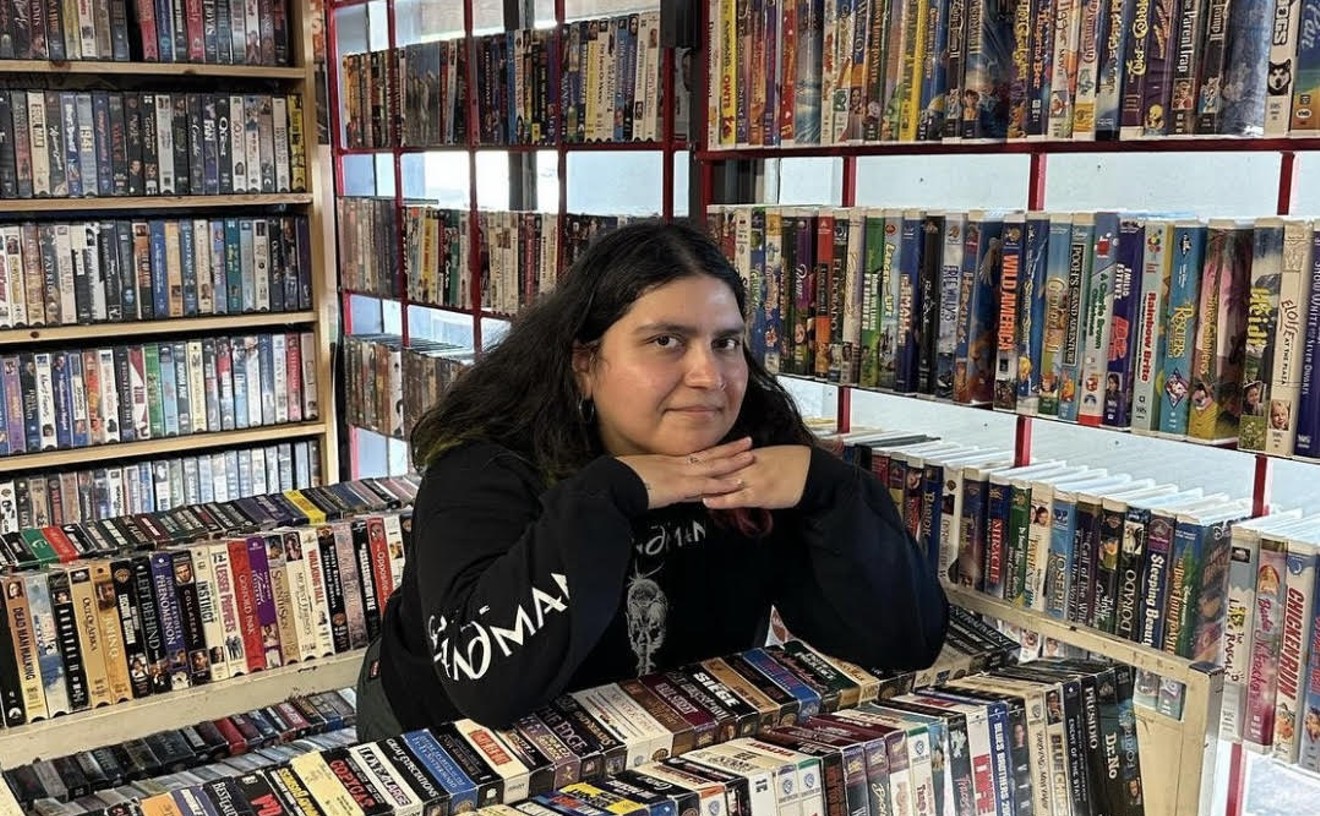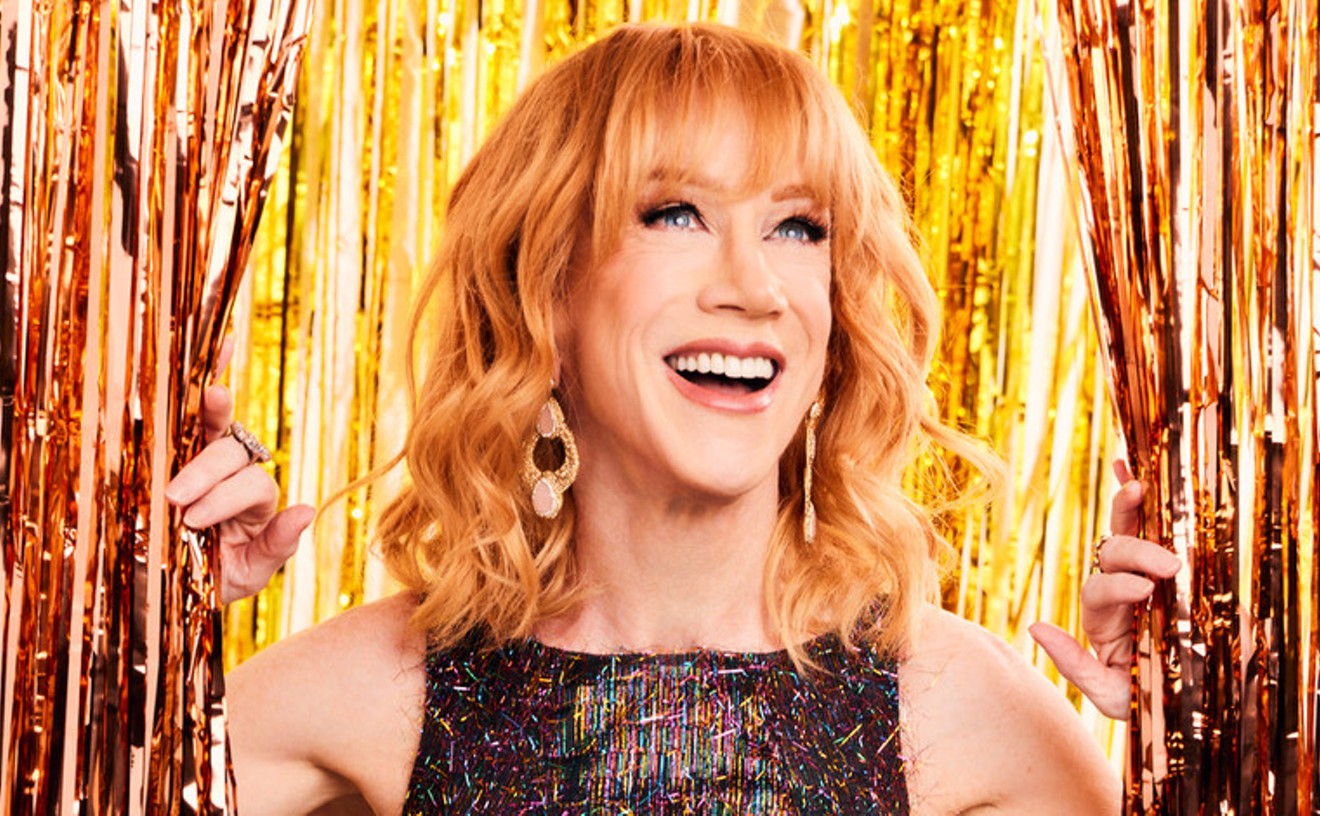Jenny Block is the writer of the Observer's sex column, Pillow Talk. She has published three books on the topic, The Ultimate Guide to Solo Sex, O Wow: Discovering Your Ultimate Orgasm and Open: Love, Sex, and Life in an Open Marriage.
This July was Lillith Grey’s 10th anniversary of teasing and titillating Dallas audiences with an old school art that’s enjoying renewed popularity: burlesque. Grey has a degree from Texas Woman's University and performing is just one aspect of her involvement with burlesque. She’s also the founder and co-producer of Tuesday Tease, a weekly queer variety show at Sue Ellen's; founder and producer of Glitterbomb Denton, a weekly queerlesque show at Mable Peabody's on Thursdays; and the founder and co-producer of Texas Queerlesque Festival.
As if that’s not enough to keep her busy, Grey also frequently emcees for Viva Dallas Burlesque, mentors new and emerging performers, contributes to Pin Curl Magazine and teaches at conferences and events across the country. Up next is BurlyCon in Seattle.
We asked Grey all of your burning questions about what it's like to be a burlesque dancer.
What made you want to do burlesque?
When I started learning burlesque, I was recovering from a terrible illness that left me with considerable muscle wasting and a really detached, bitter relationship with my body. I started doing burlesque to try to reconnect with myself after years of pain and illness.
What was your first foray into burlesque and what was it like?
My first performance was in the Rio Grande Valley, for a fetish ball. I was still really emaciated and weak, so I literally lay on the couch in the dressing room until it was my turn, then went onstage, then went back to the couch until I felt OK. I don’t remember how the actual performance went, but it was definitely a turning point in my life. My recovery went pretty well after that.
What do you do to mentally prepare to perform?
Show days are difficult, and I try not to plan anything else on that day. I try to make everything I do deliberate and intentional: packing and prepping, making sure I eat something solid and listening to my music on repeat. Once I get to the venue, I unpack my bag and set out all the things I need to get ready. I prefer a dressing room with calm energy, but many performers like a hyped-up dressing room. I really love the Viva’s dressing rooms, because there’s usually one room that’s higher energy, and one that is more chill, so I can be in a relatively quiet room if I want.
What do you do to physically prepare to perform?
That depends on what kind of performance it is. If I’m dancing, I’ll need to stretch and run through choreography. If I’m emceeing, I go over notes, try out my jokes on random people and I make a lot of silly faces. No matter what kind of show it is, though, I definitely gotta eat.
What is the most challenging thing about performing?
I think the most challenging and the most rewarding things about performing are the same: vulnerability.
What is the weirdest experience you’ve had at a show?
I performed once at a very large, very formal leather event, and they were silent while I was on stage. In burlesque, the audience's cheers and catcalls are part of the energy, so the whole time I was performing I was convinced they hated me. When I finished, the response was really overwhelming: They absolutely loved it! I didn’t really take into account cultural differences going into it, and even though I was familiar with the culture, I didn’t think about the fact that in that context, disrupting my performance by yelling would be considered very rude. It was an odd experience, but ultimately awesome.
Do you have any regrets about being a burlesque performer?
Not really. I guess if I could change anything, I would be nicer to myself. I used to be really hard on myself and didn’t feel good about my work if I made one little mistake. It took me a long time to learn that the impact of a performance is more than individual moments.
What do you wish people knew about burlesque?
I wish people understood how transformative it is. Radical body acceptance is incredibly powerful, and the kind of healing and growth that happens when you’re affirmed in such a vulnerable space can’t be replicated in any other setting.
I wish people were aware of the rich history and diversity of burlesque as an art form.
Burlesque broke, and continues to break, a lot of barriers in terms of civil rights, physical and stylistic diversity and politics. The history of burlesque includes a heritage of revolutionary artists and is heavily influenced by people of color, queers and trans folk. The Burlesque Hall of Fame works hard to document and preserve our history, and there are a lot of other burlesque brainiacs doing excellent work right now, so it’s out there for people to learn about if they want.
What are the dressing rooms at burlesque shows like?
As you might imagine, burlesque dressing rooms are so interesting. I love, love, love listening to the conversations and stories that go on backstage. I do a lot of emceeing, and I enjoy telling those stories onstage as entertainment, but often I can’t tell the stories because they’re too inappropriate. Sometimes I make the stories anonymous, but a lot of times it would be obvious who the story was about, so I can’t say it. It’s hilariously frustrating.
But seriously, burlesque dressing rooms are some of the most positive, uplifting, supportive environments I’ve ever been in. Performers, crew and emcees work together to create an awesome experience for audience members, and that means everyone supports everyone.
What advice do you have for someone who wants to try it but is too nervous?
If you wait until you’re confident, you’ll never do it. Confidence comes from getting up there, not before. For more specific support, I really enjoyed the book Mastering Creative Anxiety.
What’s the craziest question you’ve ever received about doing burlesque?
“What does your partner think about you performing like that?” This is always a weird question to me. Um, my partner thinks that I am trustworthy and supports my personal journey!
Click here to catch up with Grey's work at Tuesday Tease, 9:30 p.m. Tuesdays at Sue Ellen's (3014 Throckmorton St.), or learn more about the Texas Queerlesque Festival and Glitterbomb Denton.
[
{
"name": "Air - MediumRectangle - Inline Content - Mobile Display Size",
"component": "18855504",
"insertPoint": "2",
"requiredCountToDisplay": "2"
},{
"name": "Editor Picks",
"component": "17105533",
"insertPoint": "4",
"requiredCountToDisplay": "1"
},{
"name": "Inline Links",
"component": "18349797",
"insertPoint": "8th",
"startingPoint": 8,
"requiredCountToDisplay": "7",
"maxInsertions": 25
},{
"name": "Air - MediumRectangle - Combo - Inline Content",
"component": "17105532",
"insertPoint": "8th",
"startingPoint": 8,
"requiredCountToDisplay": "7",
"maxInsertions": 25
},{
"name": "Inline Links",
"component": "18349797",
"insertPoint": "8th",
"startingPoint": 12,
"requiredCountToDisplay": "11",
"maxInsertions": 25
},{
"name": "Air - Leaderboard Tower - Combo - Inline Content",
"component": "17105535",
"insertPoint": "8th",
"startingPoint": 12,
"requiredCountToDisplay": "11",
"maxInsertions": 25
}
]










